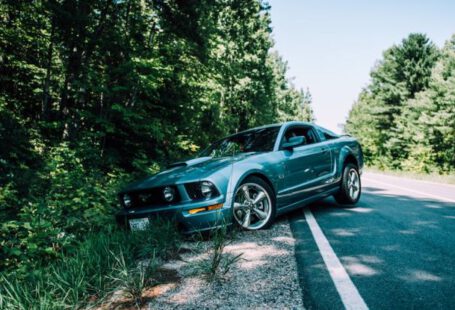Owning a classic Mustang is a dream come true for many car enthusiasts. These iconic vehicles have stood the test of time, but like any older car, they can come with their fair share of issues. Whether you have a vintage Mustang from the 1960s or a more recent model from the 1990s, there are some common problems that tend to crop up. In this article, we’ll take a look at some of the typical issues that owners of older Mustang models may encounter.
**Rust Problems**
One of the most prevalent issues with older Mustangs is rust. Over time, the metal body panels of these cars can start to corrode, especially in areas where moisture tends to accumulate. Common trouble spots include the floor pans, trunk floor, wheel arches, and the lower sections of the doors. Rust can compromise the structural integrity of the vehicle and lead to costly repairs if not addressed promptly.
**Electrical Gremlins**
Another common headache for Mustang owners is electrical problems. Issues with the wiring, fuses, switches, and relays can arise as these components age. Symptoms may include malfunctioning lights, intermittent power windows, faulty gauges, and other electrical glitches. Troubleshooting electrical gremlins in older Mustangs can be a time-consuming process, requiring patience and a good understanding of automotive electronics.
**Suspension Components**
The suspension system of older Mustang models can also present challenges. Worn-out bushings, ball joints, tie rods, and shocks can lead to a bumpy ride, poor handling, and uneven tire wear. Upgrading to modern aftermarket suspension components can improve the driving experience and enhance the handling characteristics of the car. Regular inspection and maintenance of the suspension system are crucial to ensure a smooth and safe ride.
**Engine Performance**
While the V8 engines in classic Mustangs are known for their power and performance, they are not immune to issues as they age. Common problems include oil leaks, overheating, worn-out valve seals, and carburetor issues. Regular maintenance, including oil changes, tune-ups, and cooling system checks, can help prevent these issues and keep the engine running smoothly. Upgrading to electronic fuel injection can also improve fuel efficiency and drivability.
**Transmission Troubles**
The transmission is another area where older Mustangs may experience problems. Manual transmissions may suffer from worn synchronizers, clutch issues, and gear slippage, while automatic transmissions can develop slipping, harsh shifting, and fluid leaks. Regular fluid changes and adjustments can help prolong the life of the transmission, but eventual repairs or replacements may be necessary as the car ages.
**Interior Wear and Tear**
The interior of older Mustang models can also show signs of wear and tear over the years. Faded upholstery, cracked dashboards, worn carpeting, and malfunctioning accessories are common issues that owners may encounter. Restoring the interior to its former glory can be a rewarding project, but it requires time, effort, and attention to detail. Upgrading to modern aftermarket interior components can enhance the comfort and aesthetics of the cabin.
**Conclusion: Keeping Your Mustang Running Strong**
Owning an older Mustang comes with its challenges, but with proper care and maintenance, these iconic cars can provide years of enjoyment on the road. By staying vigilant for common issues like rust, electrical gremlins, suspension problems, engine issues, transmission troubles, and interior wear, you can keep your Mustang running strong for generations to come. Regular inspections, preventative maintenance, and timely repairs are key to preserving the beauty and performance of these classic American muscle cars. Whether you’re a seasoned Mustang enthusiast or a first-time owner, taking care of your vintage pony car will ensure that it continues to turn heads and make memories for years to come.





